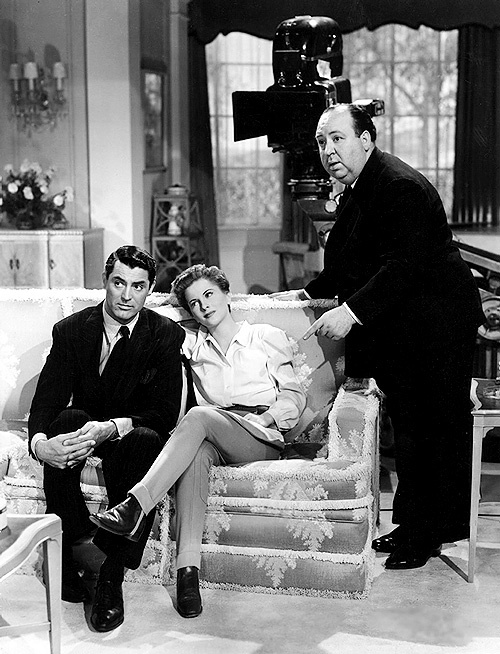"Entertainment Weekly" cover shot by David Fincher
I’m so excited about the upcoming film adaptation of Gillian Flynn’s novel “Gone Girl,” an unusual thriller about a husband suspected of murdering his missing wife. I enjoyed the book, but I’m probably most excited about the movie because it will be directed by one of my favorite modern directors – David Fincher. Fincher has a way with dark stories of murder and mystery (see “Zodiac,” “Se7en” and “Girl with the Dragon Tattoo”), and I’m confident his take on “Gone Girl” will not disappoint.
The anticipation of Fincher’s “Gone Girl” adaptation got me to thinking about some other books I’ve read that I would love to see interpreted on the big screen.
Another Country by James Baldwin
Published in 1962, this incredible novel is about several friends in New York City and how their lives change after one of them commits suicide. It deals with issues of race and sexuality at a time when those issues were just being discussed openly and challenged in mainstream society. I found it interesting that Baldwin covered the loneliness and devotion that arises from both single and traditional family relationships with such shattered bitterness and candor but also with such hope and longing. It would be quite a challenge to get this one right on film, but perhaps there are some screenwriters and directors capable of doing it justice. If only Eric Rohmer were still alive.
The Alienist by Caleb Carr
I’m a huge mystery/thriller fan, and this popular 1994 novel ranks right up there with “The Silence of the Lambs” for me in terms of intriguing characters and suspenseful writing. The story is set in 1896, long before psychological profiling was taken seriously, and pairs a New York Times crime reporter with a psychologist (alienist) and a police department secretary, all working at the behest of the forward-thinking police commissioner who happens to be Theodore Roosevelt. They are seeking a particularly brutal serial killer of adolescent boys, both disturbing and controversial, and arguably one of the reasons it has never been adapted for the movies. Whatever your take on whether audiences can handle the subject matter, it’s a great story that would make a great film in the right filmmaker’s hands.
Sharp Objects by Gillian Flynn
Ah, that Gillian Flynn again. I’ve already declared my love for mystery/thrillers, so naturally at least one of Flynn’s earlier books would make this list. It can only be one because she only has three books to her credit, and two of them – “Gone Girl” and “Dark Places” – are already in production. The one I would love to see most is her first novel, “Sharp Objects” (2006). The heroine, Camille, is a journalist who returns to her hometown to cover the murder of two adolescent girls. But her homecoming is rife with potentially damaging consequences due to her passive-aggressively abusive mother (one of the best villains of recent literature). Camille’s childhood wounds have led to her inflicting physical wounds on herself; she is a cutter, someone who cuts herself to deal with her emotional pain. And apparently that type doesn’t fly with producers looking to green light a major motion picture. But here’s hoping a capable producer and filmmaker can prove that audiences can handle a damaged heroine who solves the crimes committed against herself and others.
Song of Solomon by Toni Morrison
In Toni Morrison’s 1974 novel, Macon Dead Jr., better known as Milkman due to his delayed weaning, is a young man coming to terms with his dysfunctional family and limited opportunities in his small Ohio hometown. The richness of the book comes from the portrait of Milkman’s conflicted ambitions and his single-minded family and friends, particularly his enigmatic and sagacious aunt Pilate (yes, named after Pontius Pilate). It doesn’t have a standard plot. There are plenty of conversations, but things happen mostly through internal musings and revelations, much like in William Faulkner novels, so it could be tricky to capture it fully on film. But again, in the right hands (Ang Lee? Kasi Lemmons?), it could live up to the masterpiece of a book that inspires it.
The Shadow of the Wind by Carlos Ruiz Zafon
I have to echo Stephen King’s description of this rapturous 2001 tale by calling it a gothic novel. I’ll leave it to you to look up what that means, but it captures the makeup of the story completely. I can’t begin to go into all that happens, but here’s a spare synopsis: Set in 1945 Barcelona, a young boy discovers a rare book and soon decides to find the author’s other works. His decision leads him into a great adventure replete with lost loves, political intrigue and unsolved mysteries. It’s an adult fairy tale I couldn’t put down, and it would make an epic movie. I’m thinking we would need no less than Steven Spielberg on the case, here.
I’m always impressed by directors and screenwriters who can stay true to a novel’s spirit as they bring it into a new life on film. I post about some of my favorites (and not so favorite) in the By the Book section of the blog. Here are a couple of links to articles and posts from other sources for book-to-movie enthusiasts.
http://mentalfloss.com/article/51251/5-books-probably-wont-be-adapted-movies
http://www.criterion.com/explore/194-novels-on-the-big-screen




